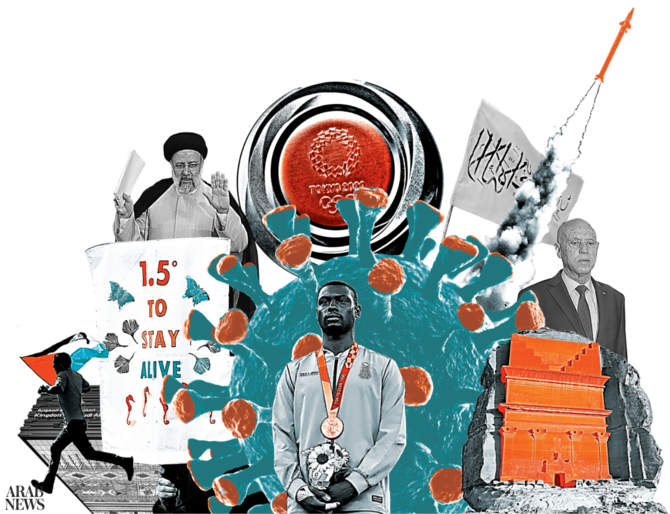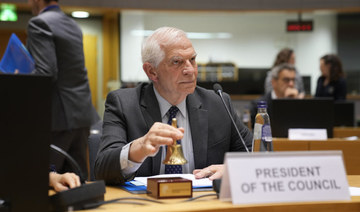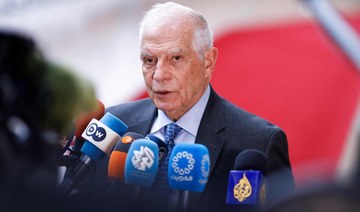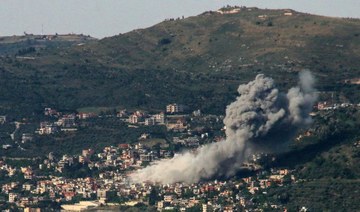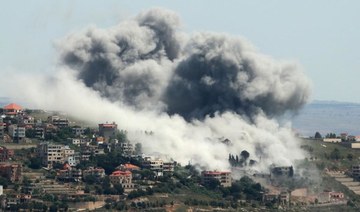DUBAI: From the second year of the global pandemic to the overthrow of governments, from glimmers of hope for environmental justice to the world’s biggest sporting and cultural events, the past 12 months have been a roller-coaster ride for the Middle East and North Africa region.
JANUARY
AlUla Declaration
The year began with great promise for the region when Saudi Arabia’s Crown Prince Mohammed bin Salman invited the leaders of the five other Gulf Cooperation Council member states to a meeting in AlUla, where he put forward his collective reconciliation project.
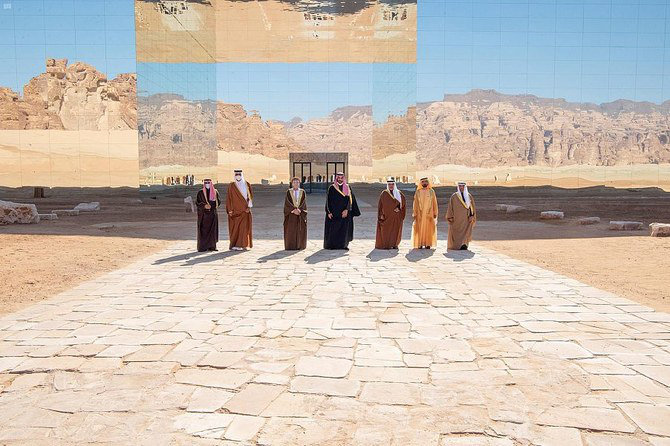
Gulf Cooperation Council leaders pose for a family picture in AlUla. (SPA file photo)
The AlUla Declaration, which ended the regional crisis that began in 2017, turned the page on all areas of disagreement in the Gulf, with its positive effects echoing across all regional issues, easing most tensions.
The agreement “strengthens the bonds of friendship and brotherhood among our countries and peoples in order to serve their aspirations,” the crown prince said at the time.
MAY
Gaza War
Relations between Israel and Palestine deteriorated in the spring following a raid by Israeli police on Jerusalem’s Al-Aqsa Mosque, provoking a wave of violence across Israel and the West Bank.
Outrage quickly escalated into a short but savage war between Israel and the Palestinian militant group Hamas, which controls the Gaza Strip. At least 145 Palestinians and 12 Israelis were killed during the 11-day conflict.

Palestinian protesters run from tear gas fired by Israeli security forces during a demonstration in the West Bank on Nov. 5, 2021. (AFP)
During the fighting, an Israeli airstrike destroyed a high-rise building in Gaza City that housed the offices of the Associated Press and other media outlets, drawing international condemnation.
A ceasefire deal brokered by Egypt, Qatar and the UN came into force on May 21.
JUNE
Iran’s new president
Ebrahim Raisi, an ideological hard-liner hand-picked by Iran’s Supreme Leader Ali Khamenei, was elected president of the Islamic Republic in June and inaugurated in August.
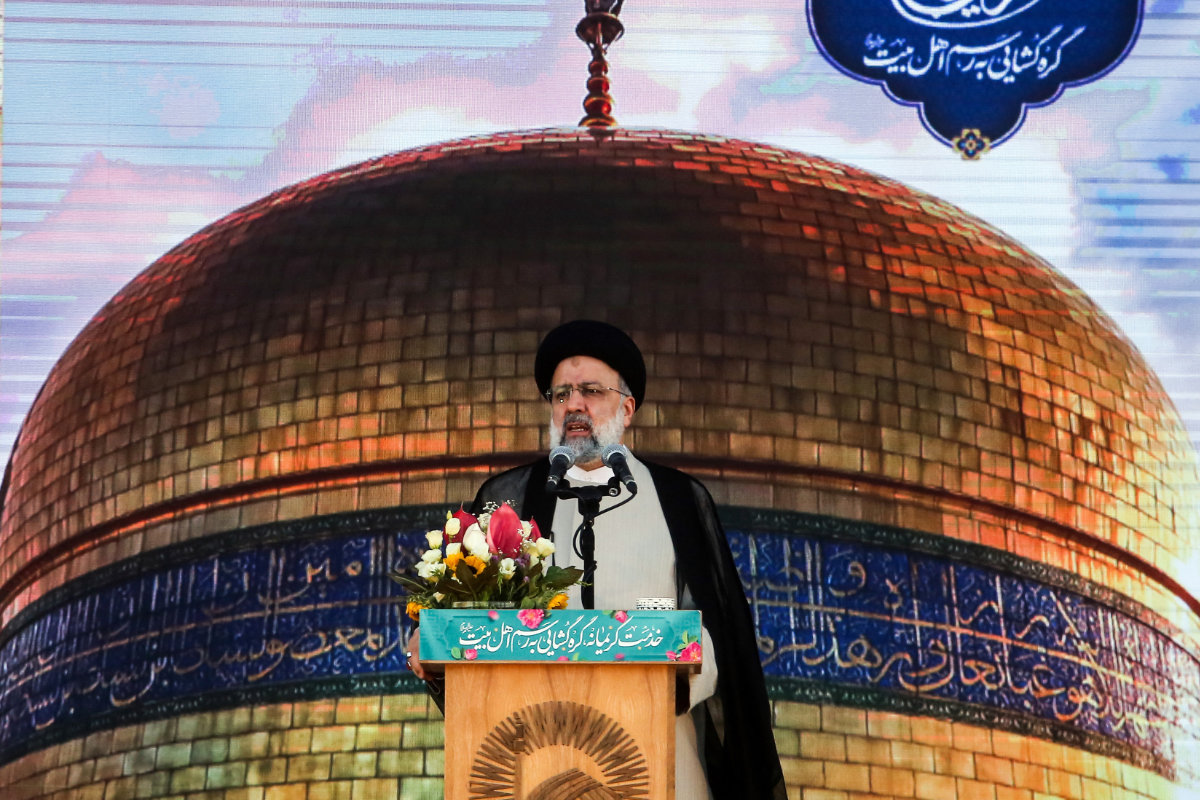
Caption
The election had the lowest turnout in the nation’s history, as many Iranians called for a boycott. Even Mahmoud Ahmadinejad, Iran’s populist former president, said he would not vote.
Raisi was allegedly an influential participant in the “death commissions” in 1988, overseeing the forced disappearance and execution of several thousand political dissidents in Evin and Gohardasht prisons.
JULY
Tunisia’s PM dismissed
Kais Saied, Tunisia’s president, dismissed the government and froze the country’s parliament on July 25 in a move his opponents branded a coup, but which attracted widespread public support at the time.
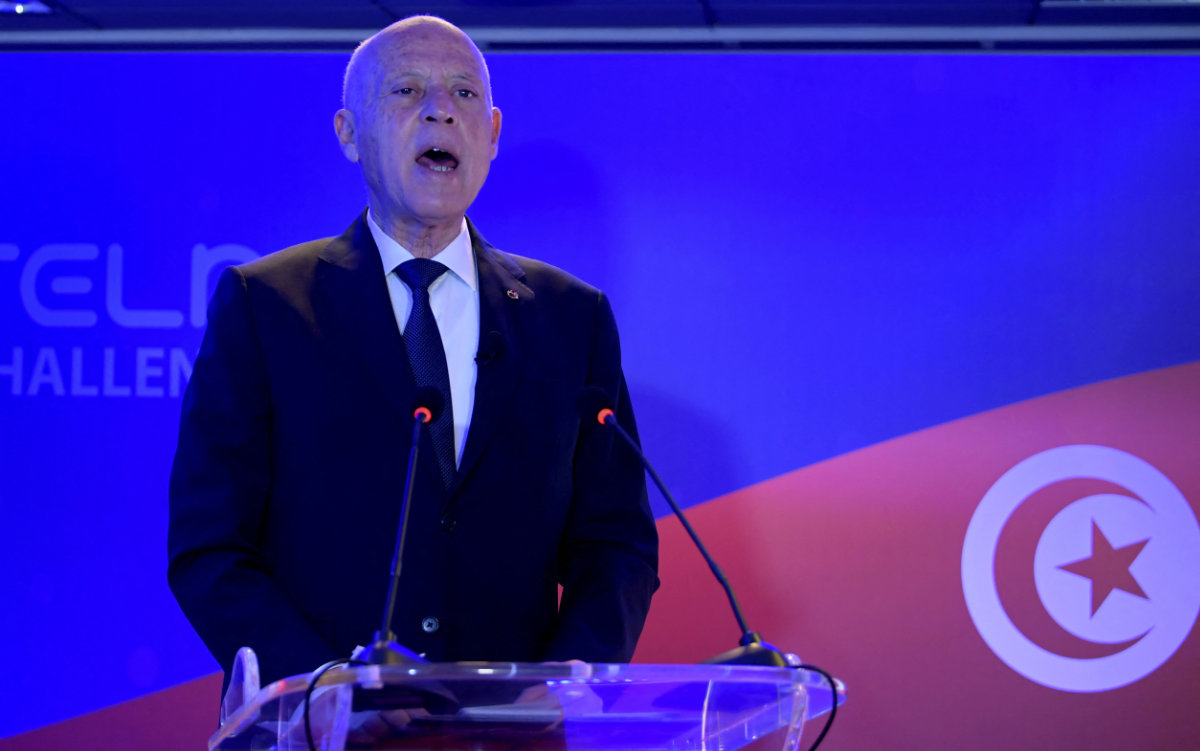
Tunisian President Kais Saied . (AFP)
Saied insisted his intervention was necessary to save the country from collapse amid an unprecedented economic and health emergency caused by the COVID-19 pandemic — failures that many attributed to misrule by the Ennahda party.
On Aug. 24, Saied extended the suspension of parliament until further notice, along with the suspension of legal immunity for parliamentarians. Public anger has since been rising, however, with fresh protests breaking out.
AUGUST
Olympic Games
After being postponed for a year because of COVID-19, organizers had hoped Tokyo 2020 would become a symbol of triumph over the pandemic. But with strict precautions still in place and a ban on spectators, the Olympic Games, which closed on August 8, felt somewhat underwhelming.

Saudi Arabia's Tareg Hamedi poses with his silver medal in the men's kumite +75kg in the karate competition during the Tokyo 2020 Olympic Games on Aug. 7, 2021. (AFP)
Nevertheless, they proved to be a great success for Arab athletes. Saudi karate practitioner Tarek Hamdi won silver in the men’s kumite +75kg category, while Egypt’s Feryal Abdel Aziz won gold in women’s kumite +61kg category.
Egypt’s Ahmed Elgendy won silver in the men’s modern pentathlon, Bahrain’s Kalkidan Gezahegne won silver in the women’s 10,000 meters, and the Qatari men’s beach volleyball duo of Cherif Younousse and Ahmed Tijan won bronze.
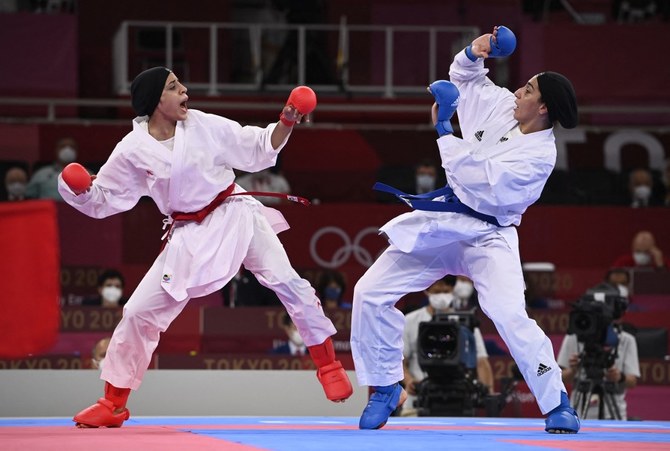
Feryal Abdel Aziz (left) of Egypt in action durinng the Tokyo Oympics. (AFP)
Taliban resurgence
As US troops began their final withdrawal from Afghanistan in August, Taliban militants swept into Kabul, overthrowing the government of President Ashraf Ghani and restoring their hard-line rule over the country.
Although the group pledged to moderate its views on women’s rights, minorities and freedom of expression, many of the repressive practices that marked its previous rule between 1996 and 2001 have returned
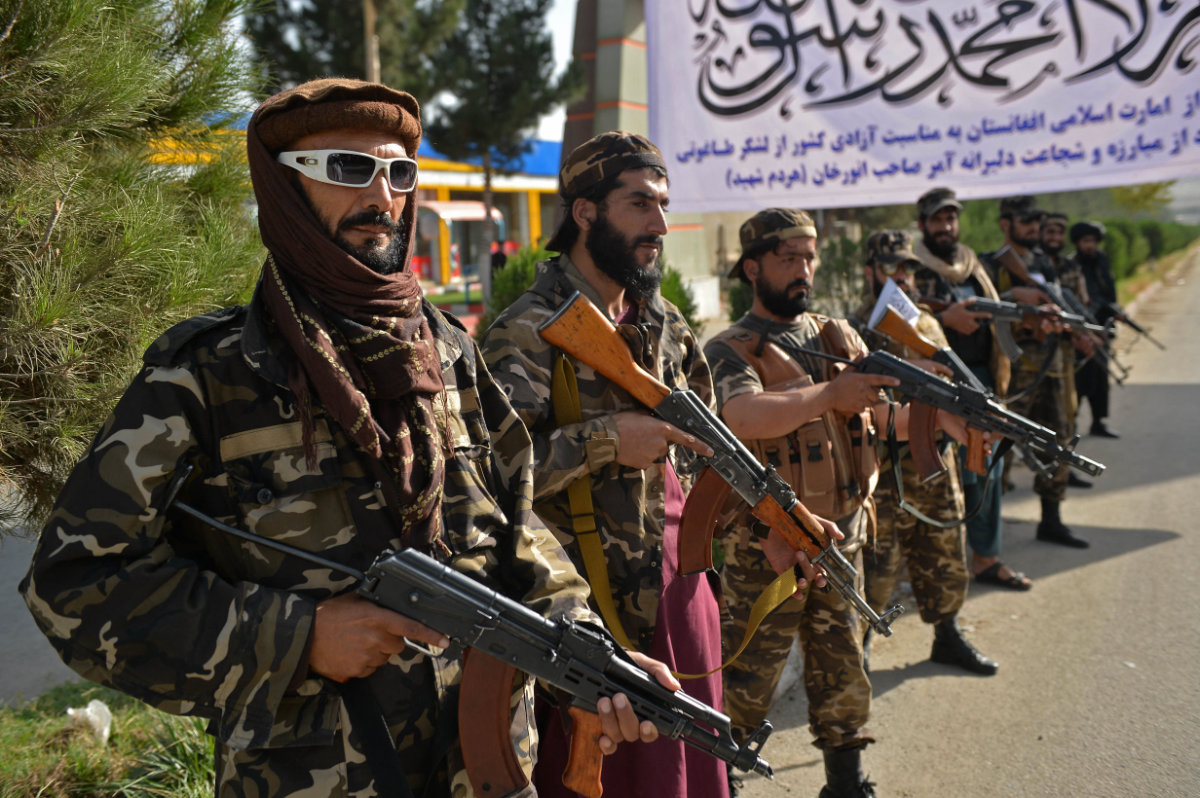
Taliban fighters stand guard near the venue of an open-air rally in a field on the outskirts of Kabul on Oct.3, 2021. (AFP)
The US, the International Monetary Fund and the World Bank have frozen Kabul’s access to billions of dollars in aid and assets until the Taliban changes ideological course. Amid a severe drought and mass displacement, Afghanistan is heading for humanitarian disaster.
OCTOBER
Expo 2020 Dubai
The Middle East’s first World Expo kicked off in Dubai on Oct. 1. The opening ceremony took place in the visually stunning, 67 meter-high Al-Wasl Dome, and featured an international program of music and cultural performances.
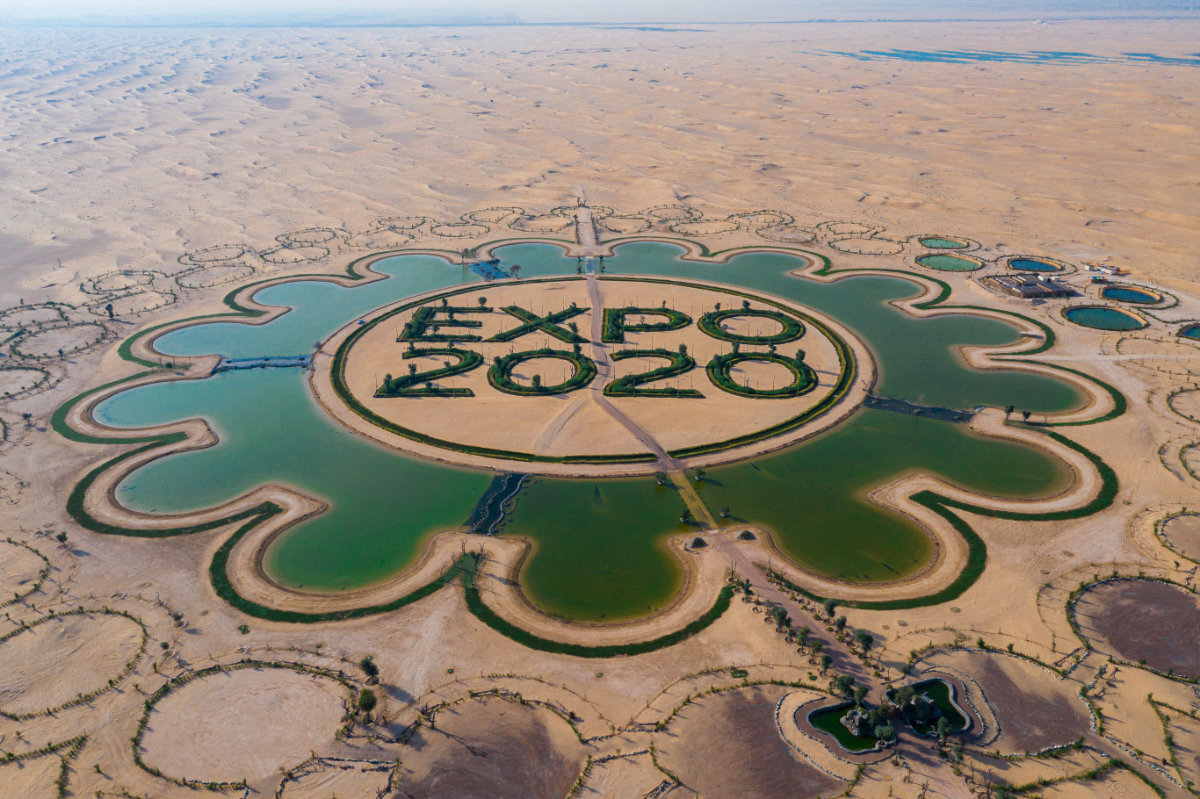
Front view of the man-made EXPO 2020 lake in Dubai Desert, UAE. (AFP)
Expo 2020 Dubai brings together 192 nations for the first time in the 170-year history of World Expos. Each country has its own pavilion, under the Emirati hosts’ stated policy of “one nation, one pavilion.”
The six-month event has served as a platform for the unveiling of innovations. Courier service provider UPS, for instance, launched the world’s first solar-powered vehicle-charging point, which it will use to power a fleet of delivery vans.
Iraq election
Iraqis went to the polls on Oct. 10 to vote in parliamentary elections originally scheduled for June. The vote was marred, however, by the lowest turnout since the overthrow of dictator Saddam Hussein in 2003.
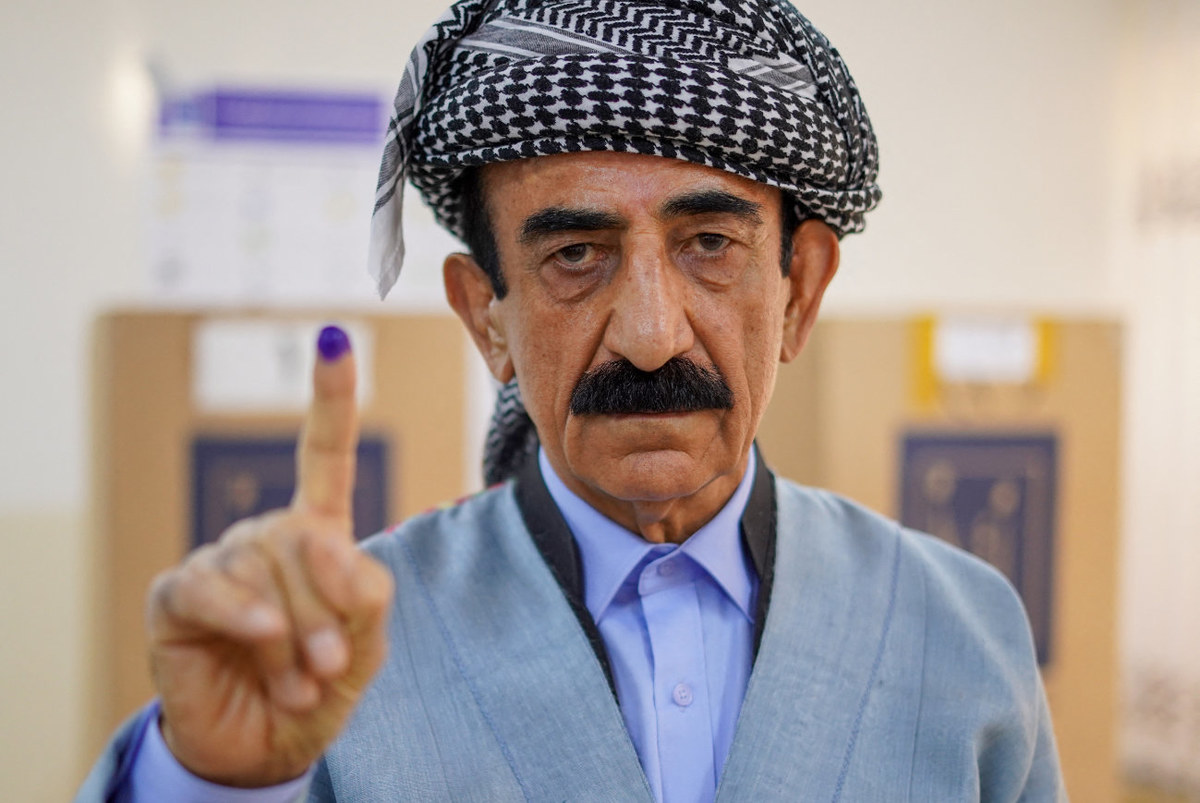
An Iraqi Kurdish man shows his ink-stained finger after casting his vote in Iraq's northern city of Dohuk in the autonomous Kurdish region during on Oct. 10, 2021. (AFP)
Although international observers praised the freedom and fairness of the elections, the country’s pro-Iran militias and party blocs have disputed the result, in which their share of parliamentary seats was slashed.
Analysts believe these militias were behind an attempt in November to assassinate Iraqi Prime Minister Mustafa Al-Kadhimi at his Baghdad residence, in retaliation for his attempts to reduce their influence.
Green initiatives
Saudi Arabia’s Vision 2030 strategy aims to reduce the Kingdom’s dependence on fossil fuels. Riyadh went a step further in October with the launch of two major initiatives designed to show that it is playing a leadership role in the global campaign against climate change.
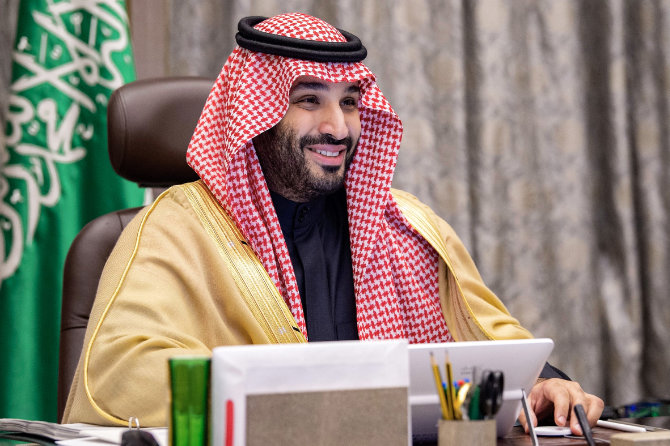
Saudi Crown Prince Mohammed bin Salman. (SPA)
When Crown Prince Mohammed bin Salman unveiled the details of the Saudi Green and Middle East Green Initiatives during a special event in Riyadh, it was a landmark occasion for the region and committed Saudi Arabia to reaching net-zero greenhouse-gas emissions by 2060.
In addition, the Kingdom pledged to completely eliminate oil from domestic power generation by 2030, replacing it with cleaner gas and renewables. Multi-billion-dollar investment programs to plant trees in the Kingdom were also announced, among other environmentally sound strategies.
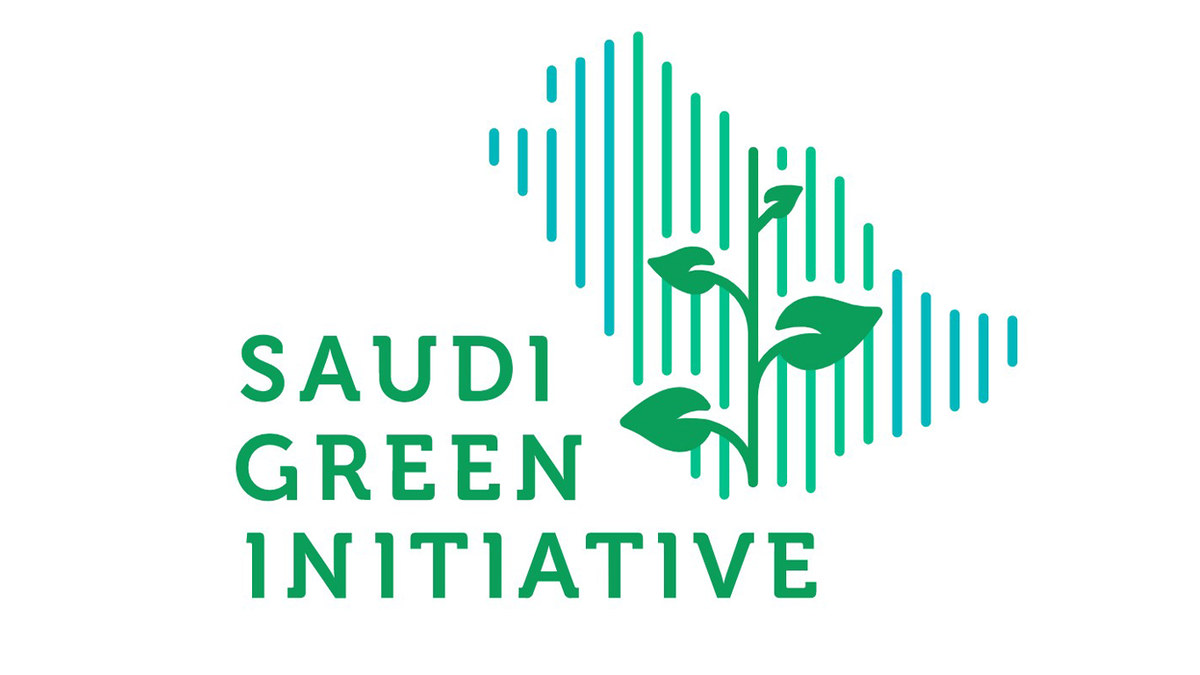
Sudan coup
General Abdel Fattah Al-Burhan staged a military coup in Sudan in late October, overthrowing the civilian government of Prime Minister Abdalla Hamdok and declaring a state of emergency. Al-Burhan claimed infighting between the military and civilian parties was threatening the nation’s stability.
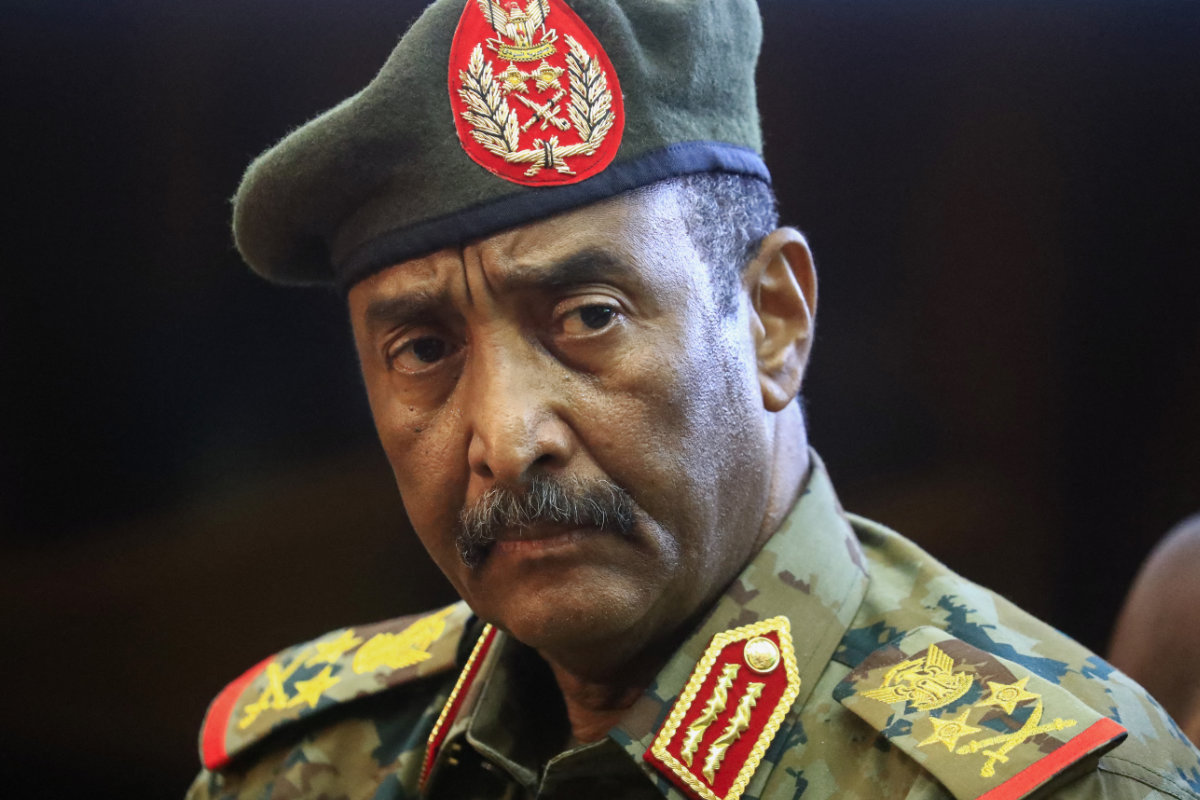
Sudan's top army general Abdel Fattah al-Burhan. (AFP)
Pro-democracy groups, which toppled the regime of Omar Al-Bashir in 2019, took to the streets to demand a return to civilian rule. Following weeks of escalating violence, Hamdok was reinstated on Nov. 21 under a power-sharing arrangement with the military.
Although the international community backed the deal for the sake of Sudan’s stability, opposition groups continue to protest against the military’s involvement in government.
NOVEMBER
COP26
This year was the year when the effects of climate change got real for many people, with a spate of forest fires, flooding, droughts and storms wreaking havoc the world over. It was also the year when efforts to cut greenhouse-gas emissions began to be taken seriously.
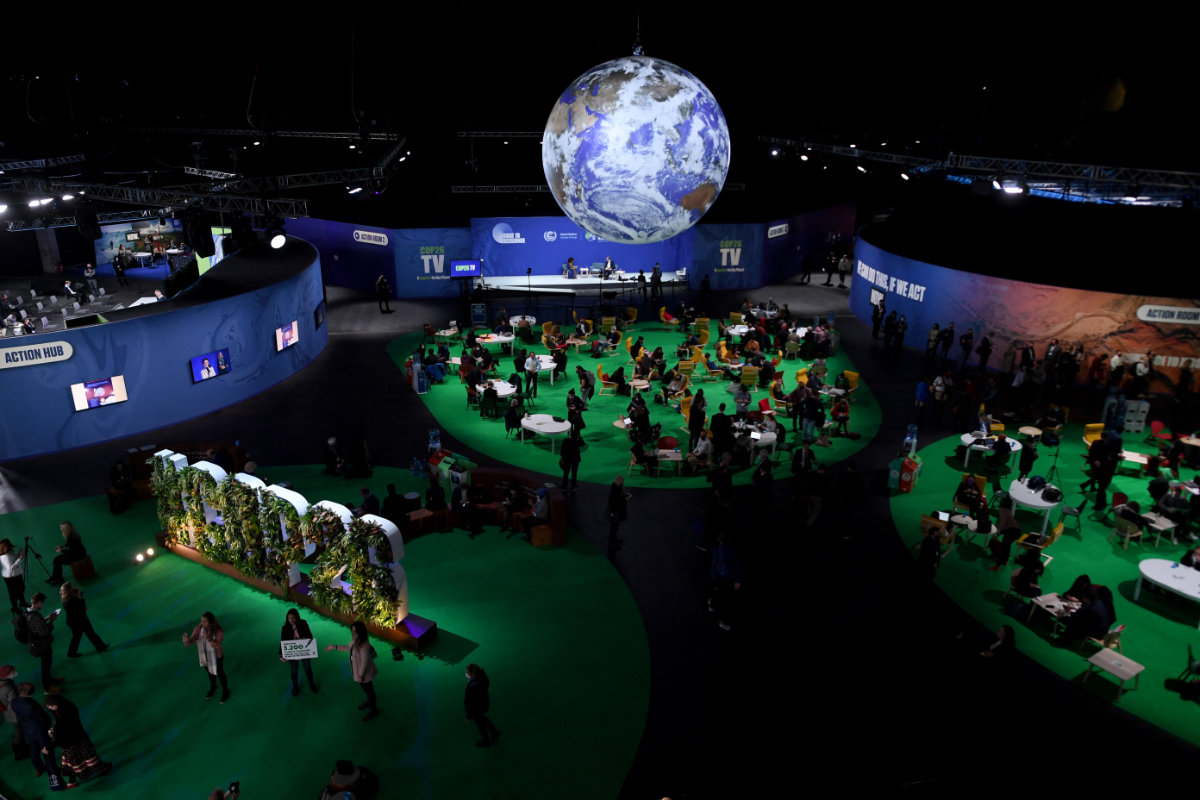
A general view of the Action Hub is pictured during the COP26 UN Climate Change Conference in Glasgow, Scotland, on Nov. 11, 2021. (AFP)
At the UN’s COP26 climate summit in Glasgow, Scotland, the world’s governments accepted a compromise deal aimed at maintaining a key global warming target of no more than 1.5 C above pre-industrial levels, with a last-minute change that toned down commitments to eliminate the use of coal.
Several countries complained the deal did not go far enough. However, it did set out rules for international trading of carbon credits and called on big polluters to come back next year with improved pledges for cutting emissions.
Omicron
Experts have said governments were woefully unprepared for the COVID-19 pandemic when it was declared by the World Health Organization in early 2020. Now, almost two years later, the world is still grappling with uneven distribution of vaccines and the emergence of new variants of the virus, the latest being omicron.
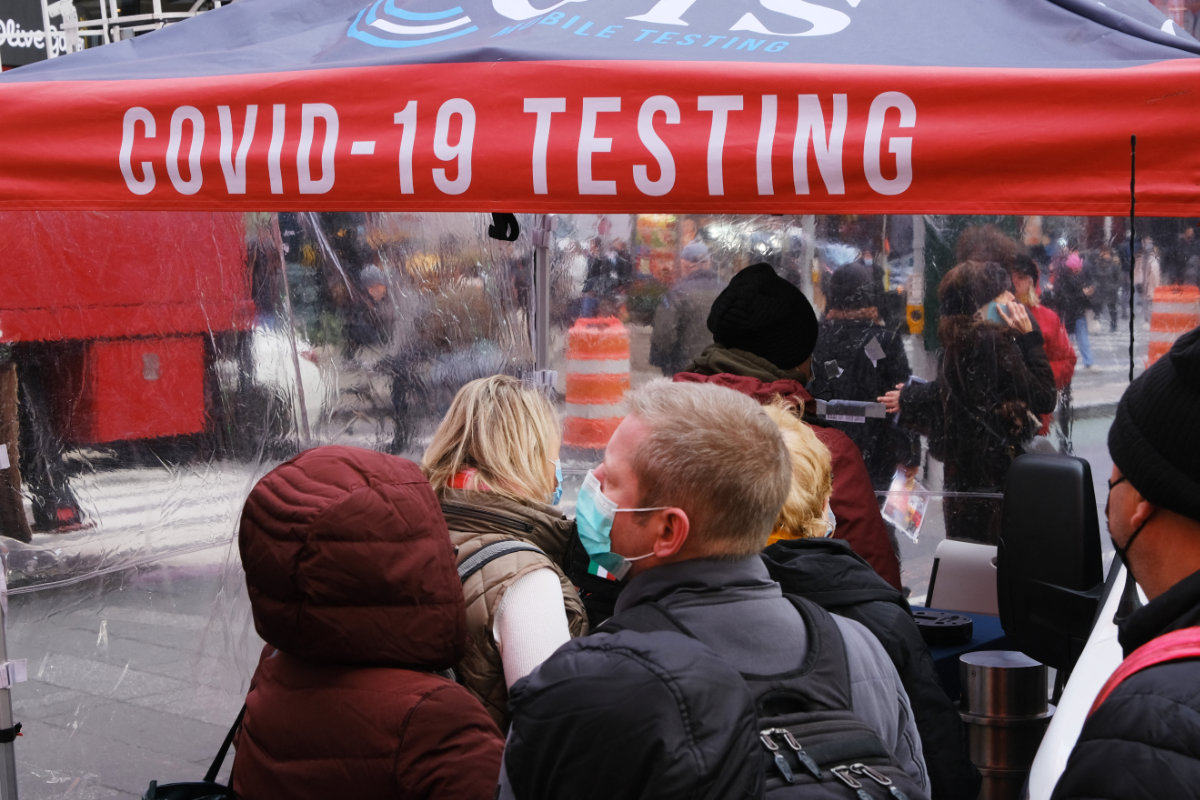
People wait in line to get tested for COVID-19 at a testing facility in Times Square on Dec. 9, 2021 in New York City. (Getty Images via AFP)
The variant was first identified in South Africa in late November and quickly became the dominant version in many countries. Studies suggest that the variant is not any more aggressive in terms of its effects than the alpha, beta, gamma and delta strains, but is more transmissible and potentially more resistant to vaccines.
Experts warn that persistent high rates of infection will continue to place a strain on countries’ health infrastructures and risks creating more-dangerous variants in the months ahead unless screening and vaccination rates in the developing world radically improve.
Although vaccination campaigns and precautionary measures in Saudi Arabia, the UAE and other Gulf states have been notably successful, other countries in the region have been less effective, leading to fresh spikes in cases.



